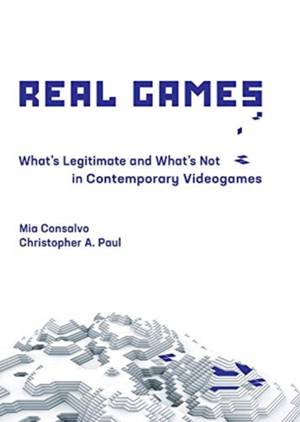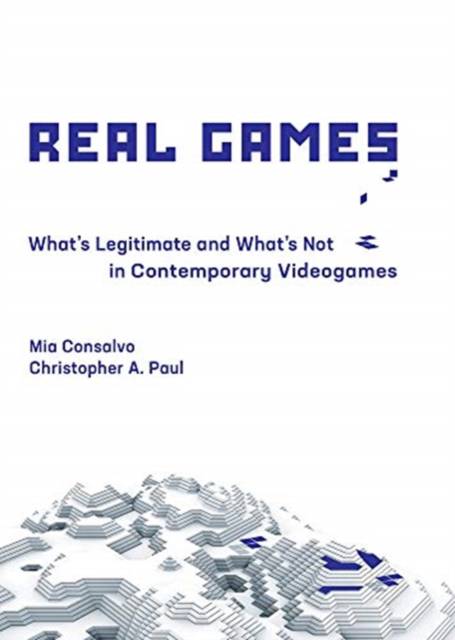
- Retrait gratuit dans votre magasin Club
- 7.000.000 titres dans notre catalogue
- Payer en toute sécurité
- Toujours un magasin près de chez vous
- Retrait gratuit dans votre magasin Club
- 7.000.0000 titres dans notre catalogue
- Payer en toute sécurité
- Toujours un magasin près de chez vous
Real Games
What's Legitimate and What's Not in Contemporary Videogames
Mia Consalvo, Christopher A PaulDescription
In videogame criticism, the worst insult might be "That's not a real game!" For example, "That's not a real game, it's on Facebook!" and "That's not a real game, it's a walking simulator!" But how do people judge what is a real game and what is not--what features establish a game's gameness? In this engaging book, Mia Consalvo and Christopher Paul examine the debates about the realness or not-realness of videogames and find that these discussions shape what games get made and who is invited to play them.
Consalvo and Paul look at three main areas often viewed as determining a game's legitimacy: the game's pedigree (its developer), the content of the game itself, and the game's payment structure. They find, among other things, that even developers with a track record are viewed with suspicion if their games are on suspect platforms. They investigate game elements that are potentially troublesome for a game's gameness, including genres, visual aesthetics, platform, and perceived difficulty. And they explore payment models, particularly free-to-play--held by some to be a marker of illegitimacy. Finally, they examine the debate around such so-called walking simulators as Dear Esther and Gone Home. And finally, they consider what purpose is served by labeling certain games "real."
Spécifications
Parties prenantes
- Auteur(s) :
- Editeur:
Contenu
- Nombre de pages :
- 224
- Langue:
- Anglais
- Collection :
Caractéristiques
- EAN:
- 9780262042604
- Date de parution :
- 01-10-19
- Format:
- Livre relié
- Format numérique:
- Genaaid
- Dimensions :
- 135 mm x 206 mm
- Poids :
- 358 g

Les avis
Nous publions uniquement les avis qui respectent les conditions requises. Consultez nos conditions pour les avis.






